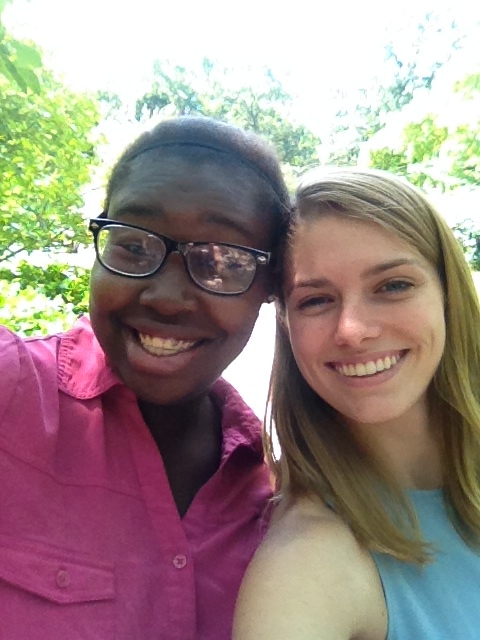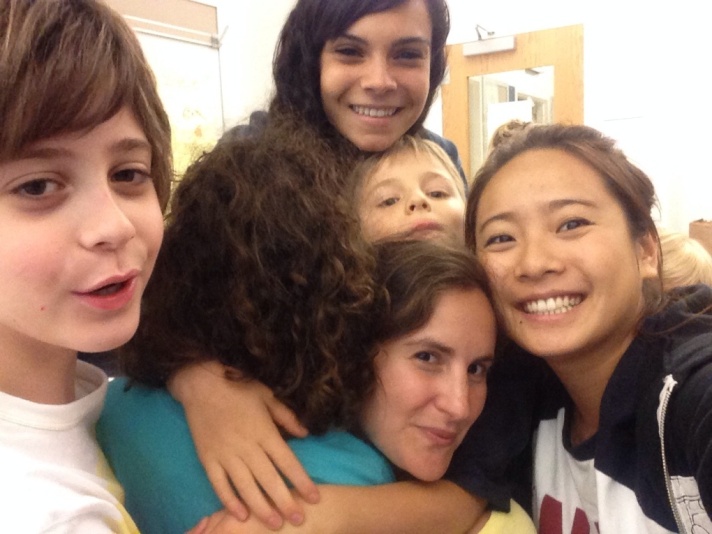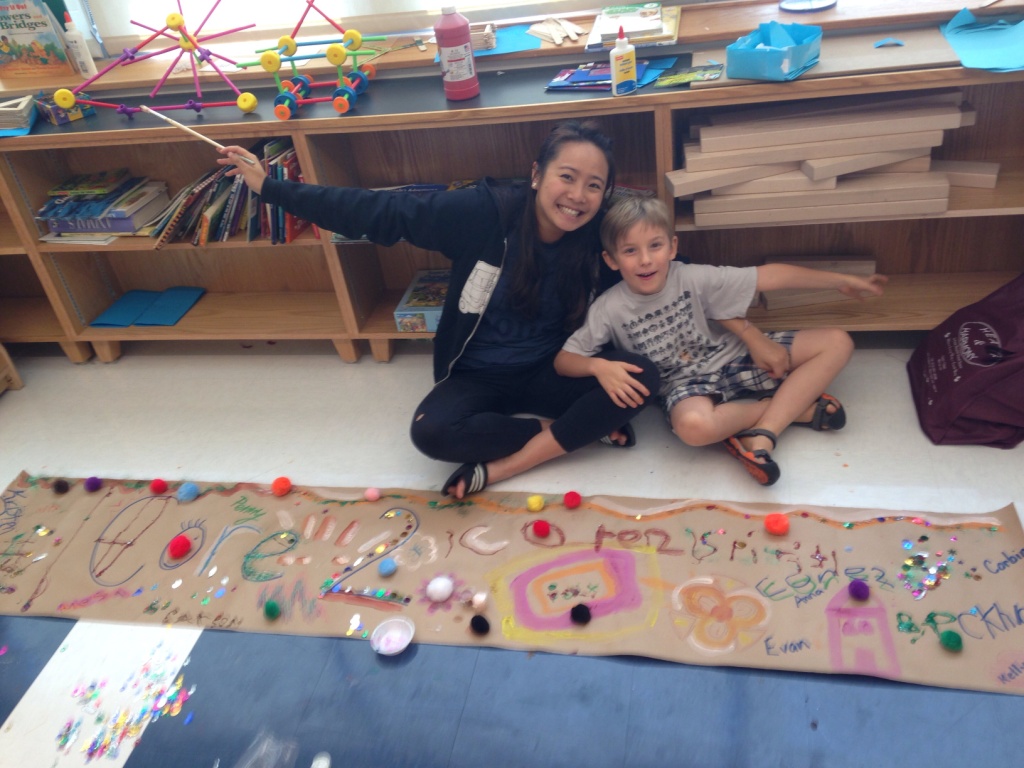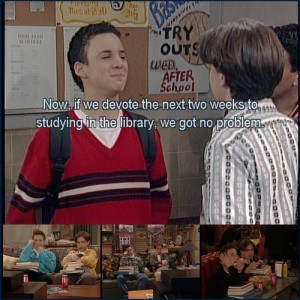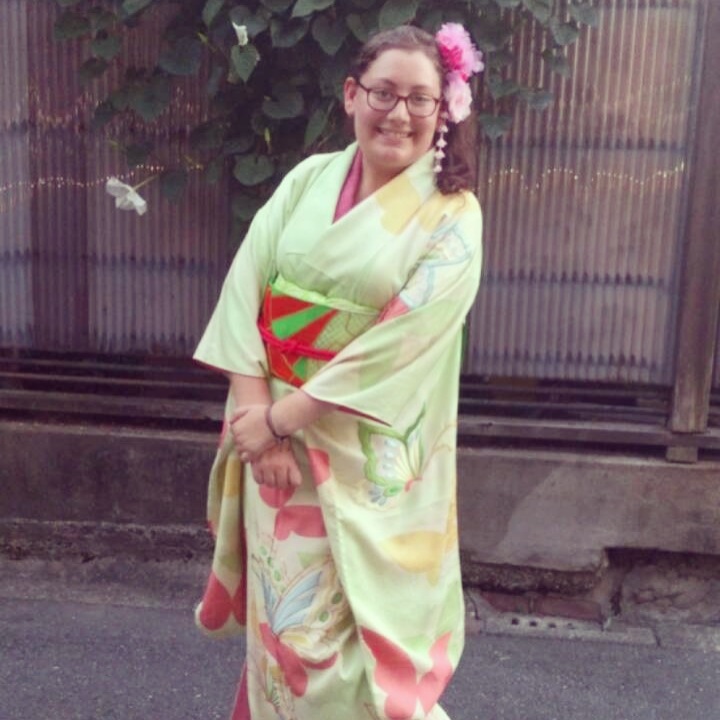If there’s one thing I know I am absolutely qualified to talk about, it’s procrastination. In fact, just to prove my point, I procrastinated writing this post–for a little ‘method blogging,’ if you will–and I am now awake much earlier than I had hoped in order to finish it. Procrastination, especially on college campuses, is a pretty common method of study and operation, and although it may work for some, it definitely doesn’t work for others. There are many signs that might indicate someone is a procrastinator: excessive intakes of caffeine, late night signs of activity on Facebook and Instagram, a cheerful disposition on the outside as jokes are made about how much work is still left to be done by a quickly-approaching deadline, etc. However, if none of these traits are applicable, there is one sure-fire way to tell if you or someone you know is a procrastinator–an age-old expression that has withstood the test of time to consistently and accurately predict a procrastinator, even in their earliest stages of putting things off.
Does the phrase, “I work better under pressure” ring a bell? I can tell you from personal experience that this idiom has almost become a kind of mantra to me, allowing me to better justify the hours of YouTube videos watched in rapid succession, as the hours tick away and my deadlines loom closer and closer with every Buzzfeed clip I finish. Although senior year isn’t quite halfway over yet, I have already learned a lot about myself and the kind of student I am by really examining how I have approached my assignments this semester so far. To be blunt, I have some pretty bad procrastination patterns–like, really bad–which, to me, signals a need for a long-overdue reorganization of my priorities, time management, and motivational strategies in order to successfully get me through this last push and prepare myself for life after Scripps. Here’s a little mood music to play while you read the rest of this post–hopefully it motivates you to take my advice to heart.
They say old habits die hard, but I don’t necessarily think that’s true. Sure, the habits you’ve picked up over the years, likely starting in your youth and solidifying in high school, have had a huge influence on how you operate as a student and in your day-to-day activities, but these old habits are not set in stone forever. Instead, I say that while old habits might not die hard, they can certainly be shifted around enough to be retrained (or at least, attempted to!). Readjusting your study habits and such is not always the easiest of endeavors, but if it will help you out in the long run and make you better prepared as both a student and an adult once you move beyond the realm of higher education, why not try to better yourself in whatever way you can? After all, isn’t that kind of the point of coming to college in the first place?
Last week, I was lucky enough to see the honorable Sonia Sotomayor, Associate Justice of the Supreme Court, give a wonderful talk at Pomona College. Her wisdom and advice for all of us in the audience was incredibly inspiring, and a lot of what she had to say has really stuck with me. She helped remind me why it is that I am here at college: because I came here for an education in order to grow as an individual and learn more about the world so I can strive to help make it a better place–not just to help me get a job once I graduate. I know, that all sounds kind of silly and romanticized, but it’s still true–and something that is often forgotten here amongst the pressure of grades, the vibrant campus life and social events, and everything in between. Sotomayor acknowledged how the expectations and the pressures of getting good grades has hindered the passion and the drive that students should be motivating themselves with, but also stressed the importance of reciprocity, even with the added expectations of high achievement: what you put into your education is what you get out of it, plain and simple. Her words forced me to evaluate my priorities as a student and reflect on the kind of education I was allowing myself to receive here at Scripps: was I pushing myself to take classes that sounded interesting, even if they were supposed to be hard or a lot of work? Or was I limiting myself by taking “easier” classes that I knew would boost my GPA and not require a lot of effort on my part–even if these classes weren’t useful to me or were things I had already learned?
While I’m sure we have all probably taken classes in both of these categories at one point or another, I found myself looking back over my time here at Scripps; not with any kind of regret, but with a sense that I absolutely could have pushed myself more. I procrastinate because I know I can and will get things done on time–as I have been doing for years. But, I have now realized that knowing I will somehow manage to finish all my work on time shouldn’t be what motivates me to actually do the work. For the rest of this semester, I want to try and change my mindset about my classes and start shifting my study habits in order to better prepare me not only for my last semester of college (which is approaching WAY too quickly, if you ask me), but also for my life after graduation, as I move into the job sphere that the cumulation of my education has equipped me to handle.
Now, of course, this change in mindset and reevaluation of habits is not for everyone. If you’re not of the procrastinating variety, then perhaps you’ve already developed the kind of mindset about your education and bettering yourself that I am striving towards. That’s awesome! Keep up the good work. Or, if you are a procrastinator, but are pretty happy with where you are in terms of what you’re doing and learning, then by all means, keep on keepin’ on–whatever works best for you. I am merely presenting some advice that I wish I had absorbed much earlier on in my educational career–because it is definitely something I had heard before, but never really understood till now, as I’m on my way out of the educational circuit–in the hopes that someone else might take it to heart.
Has this kind of epiphany ever happened to you? If you have any advice for how I should start my change in priorities and move away from using procrastination as a crutch, then by all means, please let me know! Or, if you’ve had a similar revelation at any point in your life, I’d love to hear about that as well–I’ll gladly listen to anything that will help me put off actually changing my procrastinating ways….
(Just kidding!)
(Mostly)

